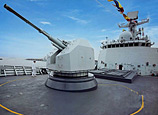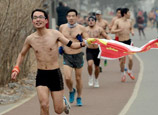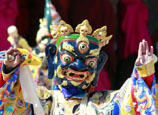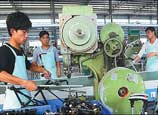
Cai Yiqing, executive director of Nomura Securities Shanghai Representative Office, said: "The revision will inject positive energy into the A-share market."
China needs stable long-term investment for its capital market to become better integrated with the international one, and to provide stable return on long-term investment, he said.
Cai said that according to the Japanese media, as RQFII business expands, there will be two A-share exchange-traded funds, or ETFs, listed on the Tokyo Stock Exchange, which should facilitate Japanese investors investing on the A-share market.
A research paper from North Square Blue Oak Ltd, a London-based investment bank, said on Monday: "The move is a further boost to the inflow of long-term institutional funds that can help stabilize prices in the market. The CSRC has greatly increased the quotas for both QFIIs and RQFII since last year, but RQFII investment is lagging far behind expectations.
"More than 100 billion yuan ($16.1 billion) worth of quota is idle in Hong Kong, the major offshore RMB center. The removal of restrictions will facilitate investment in the domestic market, especially the A-share market," it added.
China's A-share market saw a strong rally from early December, when it hit a four-year low of 1,949 points. But it has fluctuated since last week after the seven-day Spring Festival holiday, with the Shanghai Securities Journal saying offshore capital is temporarily reducing holdings of A-shares.
The Shanghai Composite Index rose by 0.5 percent to 2,325.82 on Monday.
China launched the RQFII scheme in December 2011 to allow a maximum of 20 billion yuan worth of exchange-traded funds raised offshore to be invested in the domestic capital market. The investment quota has been gradually increased to 270 billion yuan.
The regulator has said it is considering launching 100 billion yuan quotas for RQFII in Taiwan.
An official from the commission said the new rule will soon take effect.
The improved policies are expected to support and guide RQFIIs from Taiwan, and the detailed rules are still being studied, the commission official said.
As the world's largest offshore yuan trading center, Hong Kong contributes to most of the RQFII funds and now has 200 billion yuan in quotas, according to the commission.
By the end of January, the State Administration of Foreign Exchange had approved a 70 billion yuan quota for 24 RQFIIs.

















 Have you been absent during your children's childhood?
Have you been absent during your children's childhood?


![]()
